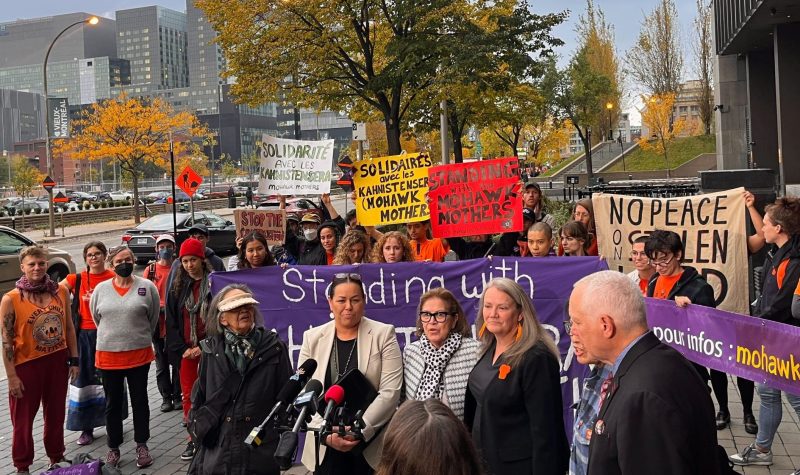The Mohawk Mothers returned to Quebec Superior Court Friday in their ongoing fight to halt drilling and excavation at the Royal Victoria Hospital site.
The hospital was once the site of psychological experiments, and the Mohawk Mothers believe Indigenous children were taken and are buried there.
They say McGill University and the Quebec Infrastructure Society (SQI), who are redeveloping the site, are in violation of a settlement agreement that the three parties signed in April. In particular, they object to McGill disbanding an expert panel that was meant to oversee the archeological work. The panel's work ended in August, over a month before the university completed their search for remains.
In a Sept. 11 message to the McGill community, McGill Provost Christopher Manfredi said that work was “carried out in full compliance with the settlement agreement,” and that any anomalies that were found on the site have been investigated and dismissed. Work restarted on the site that same day.
Part of the conflict stems from differing views on the panel's mandate. McGill's latest statement from Christopher Manfredi maintains that the "archeological work has been led from the beginning by archeologists and service providers possessing the expertise recommended by the independent panel of experts and conducted in full compliance with the Settlement Agreement."
Meanwhile, the Mohawk Mothers say the panel was meant to give more than initial recommendations. That it was not able to assess the findings from that search, nor how ongoing discoveries at the site are handled, is a failure in their eyes. In an Aug. 6 email obtained by APTN, panel member Adrian Burke also raised alarm bells about the lack of oversight for the archaeological work, which he called "very troubling" and "contrary to what the panel recommended."
At their September court date, the Mohawk Mothers' injunction request was denied because they couldn’t prove McGill would disrupt the areas where anomalies were found. Philippe Blouin, an anthropologist working with the group, says the situation has changed now that work has begun in those zones.
Whatever the outcome is, McGill's actions have marred what was once a landmark settlement agreement, says Kimberly Murray, who serves as the Independent Special Interlocutor for missing children and unmarked burials.
“We thought we came to a good agreement and that this could be a precedent in other places across the country where we are looking for unmarked burials," Murray told reporters outside the Palais de Justice. All that's changed now, she says.
Her lawyer Julian Falconer calls McGill's actions "short-sighted."
"I promise you, whatever few dollars they make on their development, the societal cost and the further erosion of trust is absolutely innumerable," Falconer said.
A decision is expected in the coming weeks.
Listen to the full story below:


